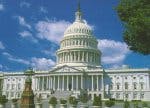By Carren BerschThe front line of smallpox preparednessLab professionals from state public health departments are on the implementation front line of the nations smallpox-preparedness vaccination program, a byproduct of bioterrorism. Scott Becker, executive director of the Association of Public Health Laboratories (APHL), says their essential role is to diagnose adverse vaccine reactions, smallpox and diseases that look like smallpox, and share this information with medical practitioners and public health officials. Ruling out diseases that look like smallpox is essential to prevent public panic.His membership, largely from that group, is part of the Laboratory Response Network (LRN), responsible for identifying the first case of smallpox should it be introduced here. APHL-member LRN laboratories would provide surge capacity support to the Centers for Disease Control and Prevention
(CDC).Sincen 2002, APHL members have worked closely with CDC, USAMRIID (U. S. Army Medical Research Institute for Infectious Diseases), academia and others, developing diagnostic strategies for the smallpox vaccination program, and recently helped CDC organize a 50-state conference call for state laboratory directors to discuss the vaccination program.Charged with the responsibility of the federal vaccination plan, local health departments will first inoculate approximately a half-million civilian healthcare and emergency workers. In a second stage, up to 10 million healthcare workers, police officers, firefighters and emergency medical technicians will be offered the vaccination.Setting up vaccine clinics is, however, only one part of the sudden demand for protective services. While intense training and education for potential vaccine recipients are among the broad plans measures, specific issues such as monitoring recipients daily and examining them after a seven-day period exemplify the burgeoning domino effect of the program.States will need continued federal support for implementation of the vaccination program. Without such assistance, other vital public health services will have to be curtailed, Becker points out.Sadly, the smallpox-preparedness vaccine program is already pinching local agencies, which point to the diversion of time and staff involvement from traditional programs to the smallpox threat, as they begin to cut back or eliminate other services. Furthermore, money allocated by Congress for bioterrorism threats in May 2002 was spent responding to anthrax events.Smallpox vaccine, considered the most dangerous human immunization, sparked recent public debate.
Times Charles Krauthammer calls for mandatory inoculation for all Americans. Alfred Sommer, dean, Johns Hopkins Bloomberg School of Public Health, advocates vaccinating a core group of healthcare workers until procedures are in place for coping with the possible reintroduction of smallpox in this country. Marc Siegel, assistant professor of medicine at NYU, wants a safer product before the necessity for mass vaccinations possibly arises, claiming the risk of smallpox appearing in the United States is still theoretical.The FDA relicensed Dryvax vaccine produced by Wyeth Lederle, with the production of a new vaccine Acam expected to be completed in May 2003, and licensure in early 2004.According to Robert A. Neri, executive vice president of the Clinical Laboratory Management Association, The issue of wide-scale inoculation of the medical workforce has been brewing for the better part of the past year. There may be some controversybecauseof the consequences tocertain members of the military who underwent mandatory smallpox vaccination, and thereafter suffered unexpected adverse reactions.This entire situation is akin to that for Hepatitis vaccination back in the early 80s, he explains, when at first, vaccines included killed virus, with some risk involved. Nonetheless, wide-scale vaccination of healthcare workers was successful. Vaccination is offered, but is not mandatory. There is likely to be less initial resistance to the notion ofvaccinating healthcare workers for smallpox. Most will probably view it as in their own best interests, he says.Debate on abridgement or abandonment of existing local health agency programs, however, and the urgent need for Congress to address adequate funding for those, as well as the smallpox program, may be just beginning.
(CDC).Sincen 2002, APHL members have worked closely with CDC, USAMRIID (U. S. Army Medical Research Institute for Infectious Diseases), academia and others, developing diagnostic strategies for the smallpox vaccination program, and recently helped CDC organize a 50-state conference call for state laboratory directors to discuss the vaccination program.Charged with the responsibility of the federal vaccination plan, local health departments will first inoculate approximately a half-million civilian healthcare and emergency workers. In a second stage, up to 10 million healthcare workers, police officers, firefighters and emergency medical technicians will be offered the vaccination.Setting up vaccine clinics is, however, only one part of the sudden demand for protective services. While intense training and education for potential vaccine recipients are among the broad plans measures, specific issues such as monitoring recipients daily and examining them after a seven-day period exemplify the burgeoning domino effect of the program.States will need continued federal support for implementation of the vaccination program. Without such assistance, other vital public health services will have to be curtailed, Becker points out.Sadly, the smallpox-preparedness vaccine program is already pinching local agencies, which point to the diversion of time and staff involvement from traditional programs to the smallpox threat, as they begin to cut back or eliminate other services. Furthermore, money allocated by Congress for bioterrorism threats in May 2002 was spent responding to anthrax events.Smallpox vaccine, considered the most dangerous human immunization, sparked recent public debate.
Times Charles Krauthammer calls for mandatory inoculation for all Americans. Alfred Sommer, dean, Johns Hopkins Bloomberg School of Public Health, advocates vaccinating a core group of healthcare workers until procedures are in place for coping with the possible reintroduction of smallpox in this country. Marc Siegel, assistant professor of medicine at NYU, wants a safer product before the necessity for mass vaccinations possibly arises, claiming the risk of smallpox appearing in the United States is still theoretical.The FDA relicensed Dryvax vaccine produced by Wyeth Lederle, with the production of a new vaccine Acam expected to be completed in May 2003, and licensure in early 2004.According to Robert A. Neri, executive vice president of the Clinical Laboratory Management Association, The issue of wide-scale inoculation of the medical workforce has been brewing for the better part of the past year. There may be some controversybecauseof the consequences tocertain members of the military who underwent mandatory smallpox vaccination, and thereafter suffered unexpected adverse reactions.This entire situation is akin to that for Hepatitis vaccination back in the early 80s, he explains, when at first, vaccines included killed virus, with some risk involved. Nonetheless, wide-scale vaccination of healthcare workers was successful. Vaccination is offered, but is not mandatory. There is likely to be less initial resistance to the notion ofvaccinating healthcare workers for smallpox. Most will probably view it as in their own best interests, he says.Debate on abridgement or abandonment of existing local health agency programs, however, and the urgent need for Congress to address adequate funding for those, as well as the smallpox program, may be just beginning.
Carren
Bersch, managing editor of MLO, formerly specialized in legislative issues for a major Washington, D.C. pharmaceutical association. As has been the history of MLOs Washington Report, this space will be
devoted in 2003 to keeping readers abreast of ongoing issues and new legislation affecting the clinical laboratory and its professional managers and technicians. If there is a particular legislative question or a legislative topic of special interest to your organization, please e-mail:
[email protected].
February 2003: Vol. 35, No. 2© 2003 Nelson Publishing, Inc. All rights reserved.
Bersch, managing editor of MLO, formerly specialized in legislative issues for a major Washington, D.C. pharmaceutical association. As has been the history of MLOs Washington Report, this space will be
devoted in 2003 to keeping readers abreast of ongoing issues and new legislation affecting the clinical laboratory and its professional managers and technicians. If there is a particular legislative question or a legislative topic of special interest to your organization, please e-mail:
[email protected].
February 2003: Vol. 35, No. 2© 2003 Nelson Publishing, Inc. All rights reserved.







